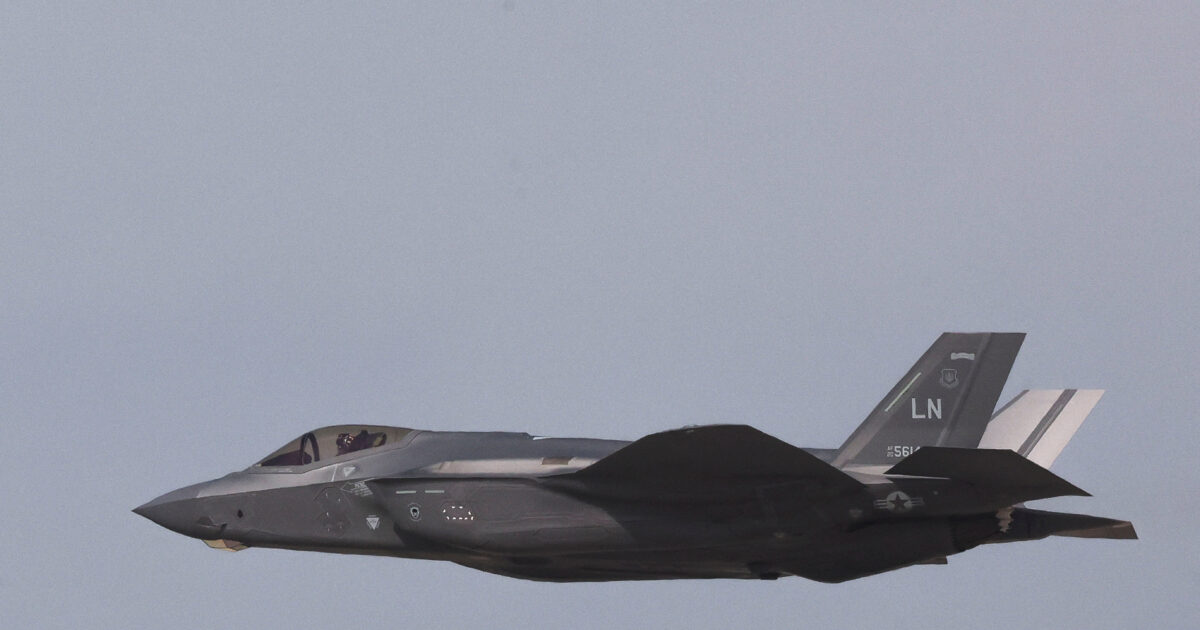The USA and the Saudi Arabia appear to have reached an agreement to supply F-35 stealth fighters, but Israel is trying to work out the details to ensure its own aircraft remain technologically superior.
During his meeting with Saudi Crown Prince Mohammed bin Salman at the White House, US President Donald Trump claimed that the fighters F-35 for Riyadh it will be “similar” to his own Israel — but officials admit otherwise.
According to officials and analysts who spoke to Reuters, the Saudi F-35s will be significantly less advanced than the Israeli ones. Israeli Prime Minister Benjamin Netanyahu confirmed this, stating that the US is committed to maintaining Israel’s qualitative military advantage in the Middle East.
He also reiterated his opposition to the supply of advanced stealth fighters to Turkey.
Israeli PM Netanyahu on the sale of F-35s to Saudi Arabia:
“Yesterday I spoke at length with Secretary of State Marco Rubio, who reaffirmed that the U.S. will maintain Israel’s qualitative military edge in Middle East arms supplies.” pic.twitter.com/rpErwl8SPv
— Open Source Intel (@Osint613) November 20, 2025
The differences with the Israeli F-35
Israel has unique licenses to modify its F-35s, including the ability to integrate its own weapons systems and add radar jamming capabilities and other upgrades that do not require US approval.
But the Israeli Air Force opposed the planned sale, warning in a letter to political leaders that it would undermine Israel’s air superiority in the region.
Even if Saudi Arabia acquires the jets, it is unlikely to receive the advanced AIM-260 JATM (Joint Advanced Tactical Missile), the next-generation air-to-air missile being developed for fifth-generation aircraft, according to Douglas Birkey, executive director of the Mitchell Institute for Aerospace Studies.
JATM’s range, which exceeds 200 kilometers, represents the most sensitive missile technology associated with the F-35. The missile will probably be offered to Israel, writes Reuters.
The F-35 adapts to each country and pilot. The US has the most capable versions, with every other nation getting an “inferior” fighter.
Future Saudi jets will be technologically “inferior” to Israeli ones, based on the software package that will be licensed.
Capability differences aside, Israel maintains a numerical advantage, currently having two F-35 squadrons and a third on order. Saudi Arabia will be limited to two squadrons.
The final decision on the sale to Saudi Arabia will have to be approved by Congress.
Israel’s concerns
Meanwhile, a White House official told Israel’s Channel 12 that the Trump administration will hold further talks with Israel on the deal to ensure the deal is balanced.
Israel, which is currently the only country in the Middle East that has F-35s, has expressed concern over the sale of the fighter jets by the US to Saudi Arabia, fearing that it would jeopardize its military supremacy.
The unnamed official told Channel 12 that “the Trump administration is committed to the law stating that the US will maintain the advantage of Israeli forces in the Middle East” and assured that the administration will not break that promise.
At the same time, as reported by Channel 12, the US is not willing to condition the sale of F-35s to Saudi Arabia on the normalization of relations with Israel, as Jerusalem had hoped. Riyadh has expressed interest in normalizing relations with Israel, but has set a condition here on the establishment of a Palestinian state.
Israel is keen to maintain its qualitative military advantage in the region by having the most advanced aircraft, and has in the past pressed the US to prevent the sale of the F-35 to other neighboring countries, including Turkey and the United Arab Emirates (UAE).
Even if the sale goes through, it will likely take at least seven years for the first aircraft to be delivered, which Channel 12 noted gives Israel plenty of time to further negotiate the terms of the sale with the US.
Source: onalert.gr
